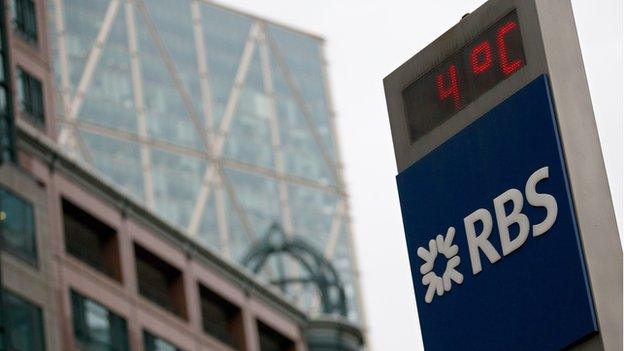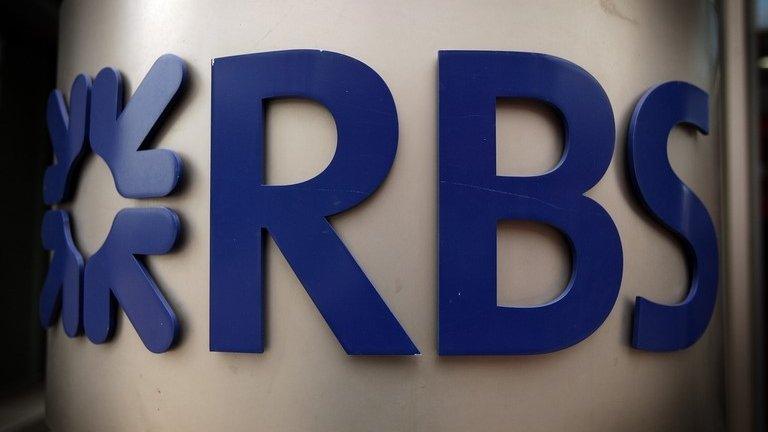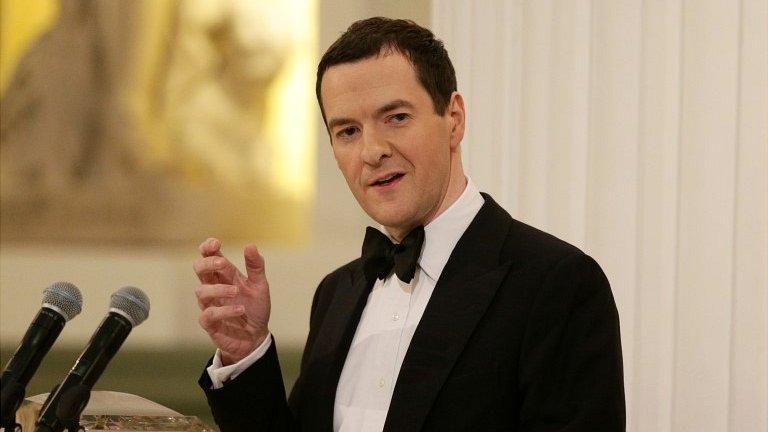RBS sale: Value for money?
- Published

The question on everyone's lips is whether the taxpayer will get value for money from its investment in Royal Bank of Scotland as the government sells it back to private investors.
But the complexity of the investment, and the chaotic time during which the UK bailed out the bank, mean you can choose any answer you wish.
Overnight, the government has sold 5.4% of the bank for £2.1bn, booking a loss of about £1bn in selling the shares at 330p apiece.
The Labour government in charge at the time of the financial crisis injected £45bn of fresh capital into the bank in the form of new shares.
The money came in three parts in 2008 and 2009 as the bank reported record losses. The average value of the shares when they were bought was about 500p each.
UK Financial Investments argues that fees the government charged RBS mean that the break-even price for the government is actually 441p per share. And the government could very well sell further batches of shares at a value closer to that amount.
Taxes and fines
The government has recovered money in fining the bank for bad behaviour for its role in the Libor and foreign exchange scandals, and through tax revenue - notably the bank levy - which it wouldn't have received if the bank had gone bust.
Taxes and fines wouldn't be considered by many as orthodox returns for investors. But this is money the Exchequer has benefited from.
But on the other hand, that 441p price ignores the interest the Treasury would have had to pay to borrow the £45bn to buy the shares. Interest it has been paying for more than five years while no dividend has been paid by the bank in return.
It also ignores the value of cheap money offered to the banks, including RBS, in the wake of the crisis.
So arriving at a definitive answer is tricky.
Finally, the reason the shares were bought in the first place must be remembered: to keep the doors of one of the world's largest banks open. Nobody can say how much would have been lost if the company had been put to the wall. But it's likely to be more than any losses the government might sustain with its share sale.
'Good a time as any'
The other question being asked is why the sale is occurring now?
In February, shares in RBS were being traded for more than 400p, compared with the 330p the government sold them for. Selling at the higher price would have bagged the Treasury an extra £440m.
Harriett Baldwin, economic secretary to the Treasury, said Chancellor George Osborne was following Bank of England Governor Mark Carneys' advice in June that a sale should now begin. Mr Carney said at the time it "would promote financial stability" and benefit the wider economy.
And if Mr Osborne wanted to get started, it was probably this week or wait until September, as more of the City investors who would buy the shares disappear for their summer holidays.
Things may get stickier for share prices by then, Mark Taylor, a former IMF and Bank of England economist who is now Dean of Warwick Business School, told 5 live.
"August is a dead news month - come the autumn there'll be a report from the competition watchdog on the workings of the banking sector, there'll be various other news coming out in the financial markets - so we don't know which way its going to go," he says.
"I think the other reason is just really that, politically, the government want to get RBS off its books during the lifetime of this parliament, so, they've got to start selling some time and now is as good a time as any."
- Published3 August 2015

- Published11 June 2015
